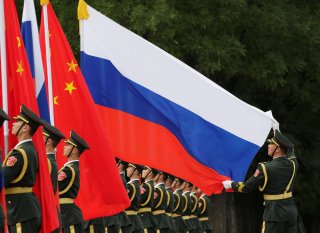Why America Needs a Foreign Policy Reset
We must recognize that world affairs are rarely black and white, that alliances should serve as instruments of U.S. policy rather than as ends in themselves, and that—like it or not—history as we always knew it has returned.
There are three main dangers associated with the current American—and more broadly, Western—policy toward Russia. First: there is the real and dangerous possibility of escalation in areas where U.S. and Russian forces stand eyeball-to-eyeball, as in Syria, or on the high seas. The growing number of incidents involving the two militaries makes increasingly apparent that Russian forces have been instructed to act more assertively, and it would take only the slightest miscalculation for one of these incidents to spin out of control. Second: there is mounting evidence of irritation with Putin’s approach of “strategic patience” among the Russian elite, as well as a growing insistence that the only way to change the negative dynamic with the West is through escalation and reliance on military force, which would leave no doubt that Russia is willing and able to play hardball. Last, but not least: there is a realistic possibility of a Chinese-Russian tactical alliance. China and Russia would clearly prefer to have normal relations with the United States rather than build an alliance against it. Yet history is filled with instances of strange bedfellows that had momentous foreign policy consequences—the Molotov-Ribbentrop Pact of 1939 being the foremost example. As Chinese and Russian elites grow increasingly frustrated with America, the temptation to cut the United States down to size through a joint Chinese-Russian effort only intensifies. Even in the absence of such an alliance, giving Beijing the sense that it can reliably count on Moscow’s support cannot be in the American interest.
Understanding the complexity of Chinese and Russian actions does not amount to any expectation that Beijing and Moscow could become American friends. Nor does recognizing the danger in NATO’s reckless misuse imply that we need to abandon NATO altogether and reject the demonstrable benefits of a global network of alliances. Instead, we must recognize that world affairs are rarely black and white, that alliances should serve as instruments of U.S. policy rather than as ends in themselves, and that—like it or not—history as we always knew it has returned. Those who resist accepting this essential fact risk finding themselves on the wrong side of history.
Dimitri K. Simes, publisher of The National Interest, is president and CEO of the Center for the National Interest.
Image: Reuters

